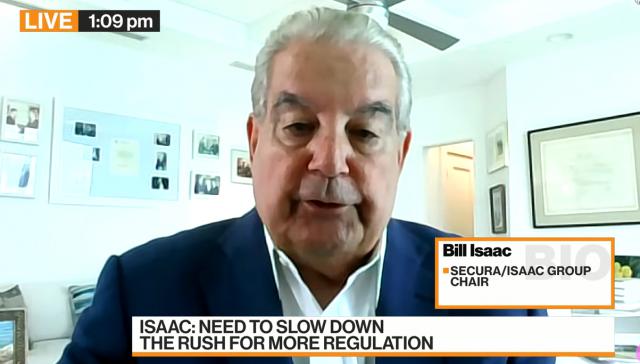According to the following article, it is clear that the banking industry in the United States is currently facing great challenges and pressures. In this situation, investors are advised to be very cautious and not to overly pursue high returns at the expense of risk. The following are some trading recommendations:
- Adjust positions: It is recommended to reduce positions in banking-related stocks and allocate capital to other more robust sectors or asset classes, such as consumer goods, healthcare, gold, etc.
- Pay attention to policy changes: Regulators may take more aggressive measures to strengthen regulation of misconduct, and investors should pay close attention to policy changes and make timely adjustments accordingly.
- Pay attention to risks: The banking sector is currently facing high risks, such as credit defaults and declining asset quality. Investors should pay close attention to the related risks and adjust their positions and trading directions in a timely manner to reduce risks.
- Look for investment opportunities: Despite the overall pressure on the banking sector, there may be certain banks with undervalued stock prices that can be considered for moderate investment. Also, you can pay attention to investment varieties such as banking sector-related ETFs to diversify risks.
Relevant information:
(Reuters, March 30) – Former Federal Deposit Insurance Corporation (FDIC) Chairman William Isaac acknowledged in an interview on Wednesday (March 30) that regulators have been slow to act in the wake of the banking crisis, though he insisted there is no need for more regulation.

Isaac noted, “I think they’ve been slow to act – both the state of California as the primary regulator, the Federal Reserve as the primary federal regulator, and even the FDIC.”
According to preliminary projections, several recent bank failures have cost the FDIC about $23 billion in expenses.
Generally, deposit insurance is collected on a quarterly basis, but in special cases like this, the FDIC can also initiate what it calls a “special assessment” and collect an additional amount.
There are reports that the FDIC and government officials are considering shifting a higher-than-usual portion of the burden to several of the largest U.S. banks to ease pressure on regional institutions.
Moderate Regulation
On Tuesday and Wednesday, officials from the FDIC, the Federal Reserve and the U.S. Treasury Department, coincided with hearings on Silicon Valley banks in both houses of Congress.
Michael Barr, vice chairman of the Federal Reserve for financial regulation, said at the meeting that the bankrupt Silicon Valley Bank (SVB) was a “textbook case of mismanagement” and that it would be necessary to strengthen the rules governing capital and liquidity for some regional banks in the future.
In response, Isaac pointed out that there is already too much regulation in the system and further regulation would be counterproductive. However, he also said that regulators need to take more aggressive steps to regulate banks that are acting inappropriately.
Isaac argues, “Every time something goes wrong, Congress decides that there has to be more regulation, yet it becomes more complicated for the banks, the regulators and the public. This is counterproductive and doesn’t work.”
“So, I think we should slow down and not rush to fix the problem and create more regulations on that basis. We need to learn the lessons and start working properly at all levels.”
Disclaimers:
Any opinions and information provided by us are for informational purposes only and do not constitute any investment advice or recommendation. Investors are solely responsible for the consequences of any investment decisions made by anyone relying on the information or advice provided by us and are not responsible for us.
We are not responsible for any direct or indirect losses arising from the use of or reliance on the information or advice provided by us. Investors should conduct their own research and evaluation of markets, securities and other investment instruments, and make investment decisions within their own risk tolerance.
Please note that investing involves risk and is not suitable for everyone. Investors should carefully consider their investment objectives, risk tolerance and financial situation before making any investment decisions.




